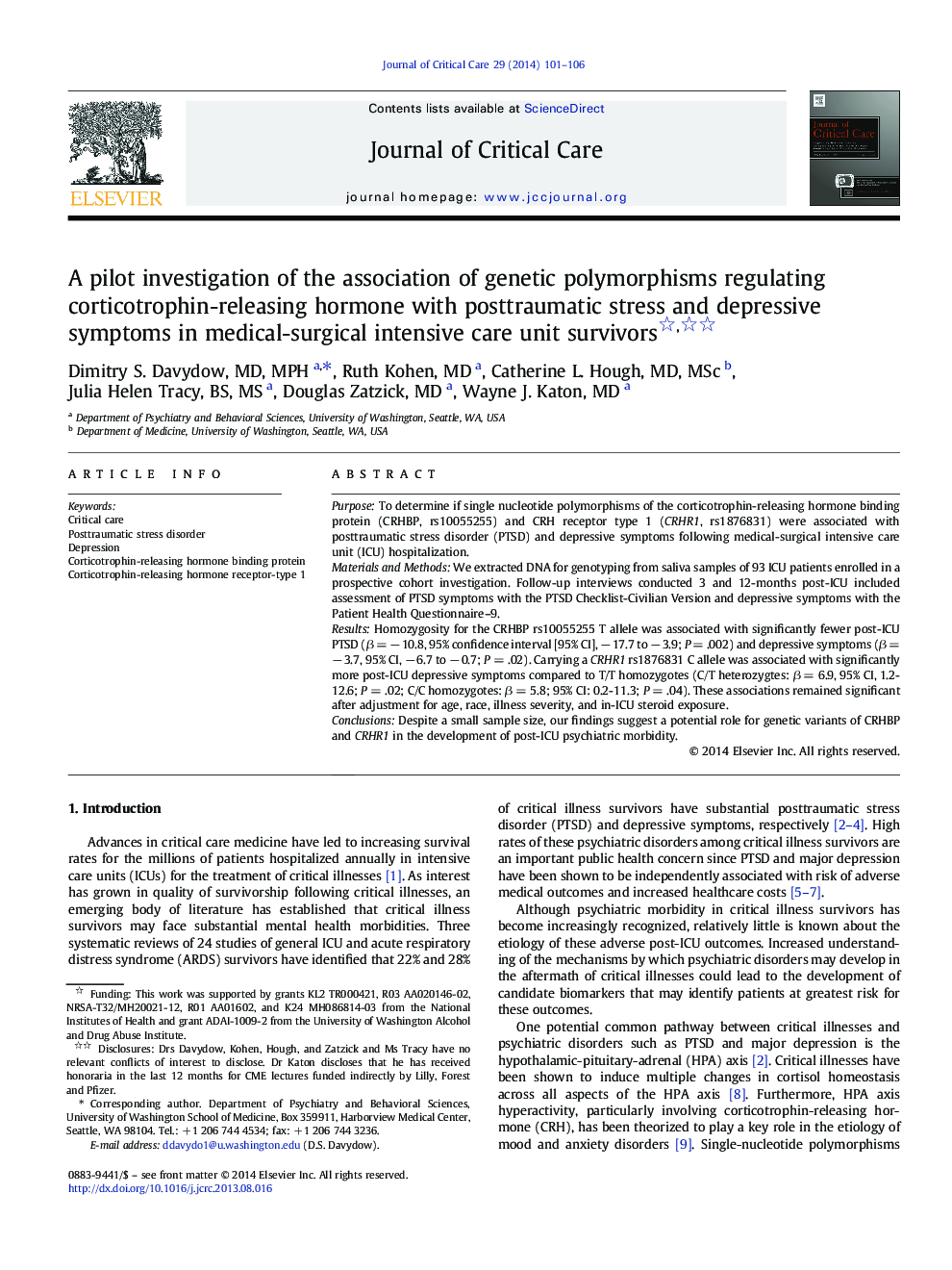| Article ID | Journal | Published Year | Pages | File Type |
|---|---|---|---|---|
| 2764662 | Journal of Critical Care | 2014 | 6 Pages |
PurposeTo determine if single nucleotide polymorphisms of the corticotrophin-releasing hormone binding protein (CRHBP, rs10055255) and CRH receptor type 1 (CRHR1, rs1876831) were associated with posttraumatic stress disorder (PTSD) and depressive symptoms following medical-surgical intensive care unit (ICU) hospitalization.Materials and MethodsWe extracted DNA for genotyping from saliva samples of 93 ICU patients enrolled in a prospective cohort investigation. Follow-up interviews conducted 3 and 12-months post-ICU included assessment of PTSD symptoms with the PTSD Checklist-Civilian Version and depressive symptoms with the Patient Health Questionnaire–9.ResultsHomozygosity for the CRHBP rs10055255 T allele was associated with significantly fewer post-ICU PTSD (β = − 10.8, 95% confidence interval [95% CI], − 17.7 to − 3.9; P = .002) and depressive symptoms (β = − 3.7, 95% CI, − 6.7 to − 0.7; P = .02). Carrying a CRHR1 rs1876831 C allele was associated with significantly more post-ICU depressive symptoms compared to T/T homozygotes (C/T heterozygtes: β = 6.9, 95% CI, 1.2-12.6; P = .02; C/C homozygotes: β = 5.8; 95% CI: 0.2-11.3; P = .04). These associations remained significant after adjustment for age, race, illness severity, and in-ICU steroid exposure.ConclusionsDespite a small sample size, our findings suggest a potential role for genetic variants of CRHBP and CRHR1 in the development of post-ICU psychiatric morbidity.
